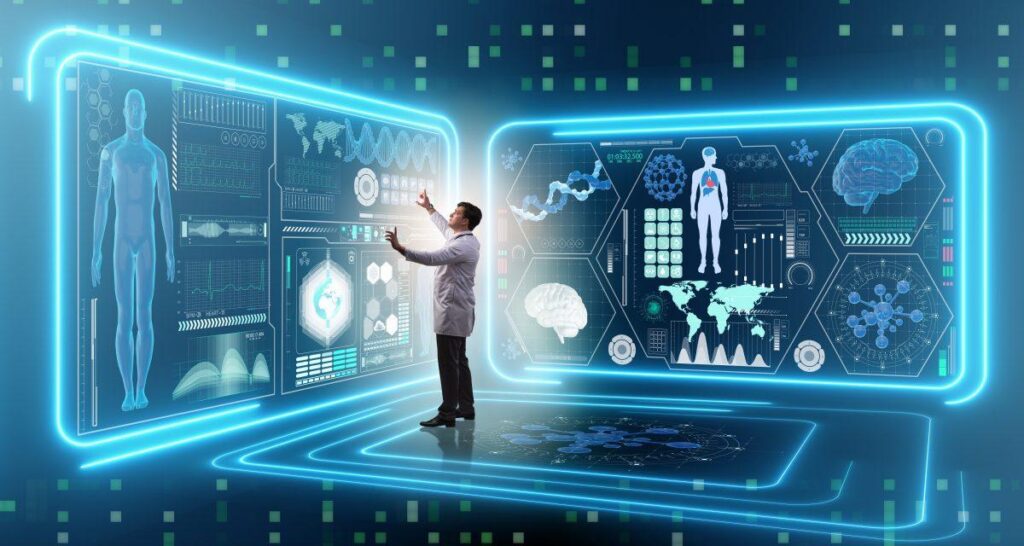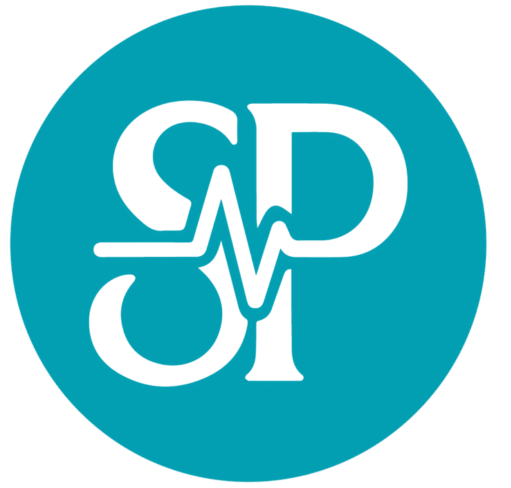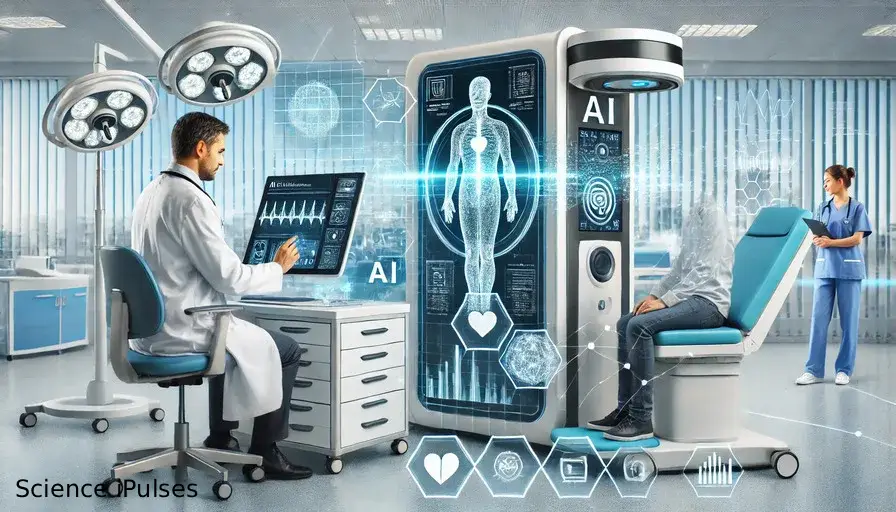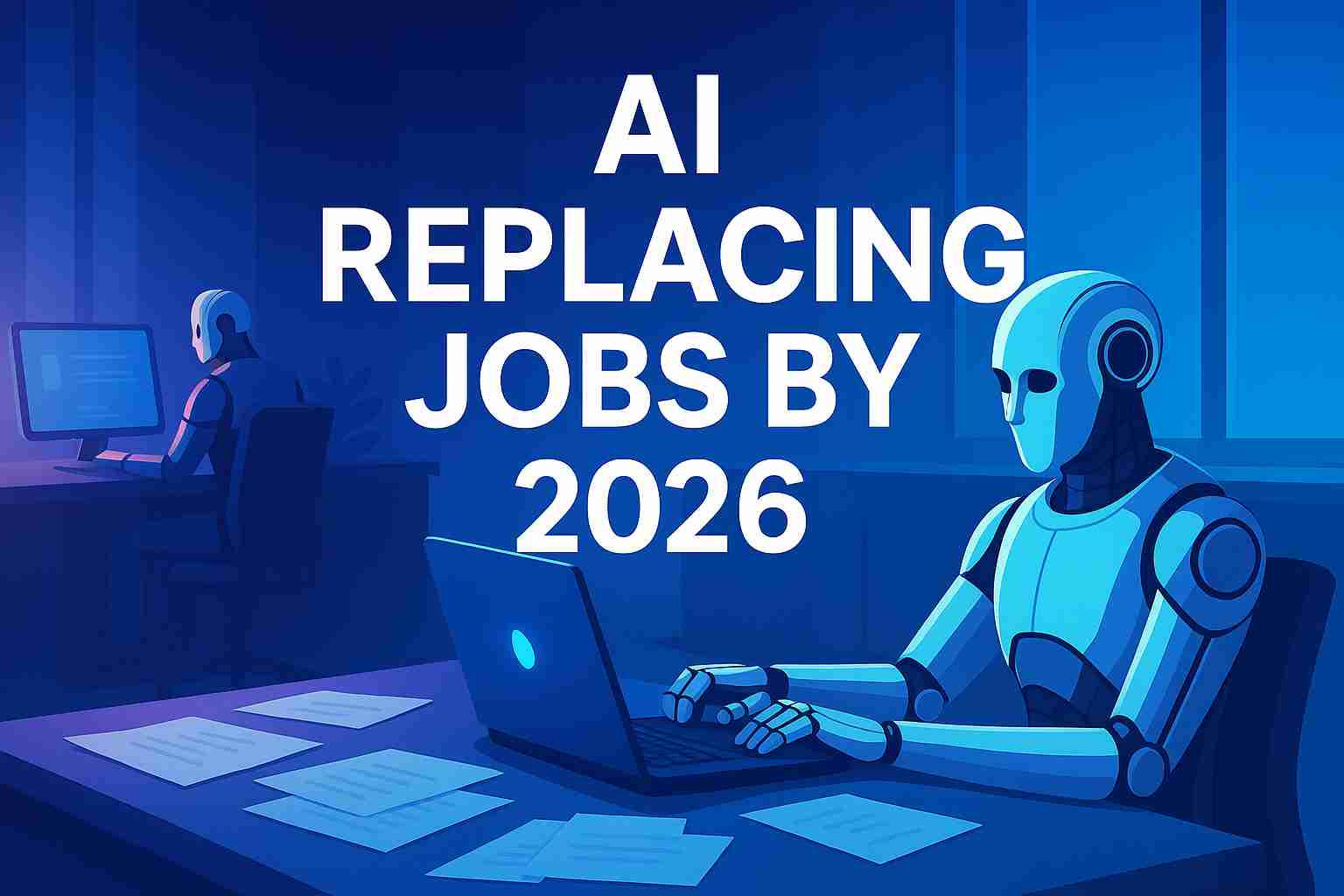AI in Healthcare is no longer just a theory—it’s a high-powered engine driving the transformation of modern medicine. The rise of rapid diagnostics, AI-fueled personalized treatments, and digital health solutions powered by artificial intelligence in medicine are enabling physicians with smarter, faster, and more accurate care than ever before.
In fact, According to a Precedence Research report, the global AI healthcare market is projected to exceed $187.95 billion by 2030, showing that the future of AI in healthcare is already unfolding., indicating how quickly we are transforming to digital health technologies.
🌟 Let’s dive into the 5 most powerful AI innovations that are revolutionizing medicine forever:
🧠 1. AI in Medical Diagnosis: Superhuman Accuracy
AI in Healthcare is revolutionizing how doctors detect and diagnose diseases. From X-rays to MRIs, AI algorithms—like Google DeepMind and IBM Watson Health—are now outperforming human experts in several areas of medical diagnosis. Grok AI, with its real-time learning capabilities, is now being explored in advanced medical research to interpret complex health data with remarkable speed and accuracy.
✅ Key Breakthroughs in AI Diagnosis:
- Early detection of breast, lung, and skin cancers
- Spotting strokes and aneurysms in real-time brain scans
- Identifying retinal diseases through non-invasive eye scans

🧬 2. AI-Powered Personalized Treatment Plans: The Future of AI in Healthcare
Every patient is unique — and AI in healthcare is revolutionizing how treatments are tailored to individual needs. By analyzing:
- 🧬 Genetic profiles
- 📋 Medical history
- 📊 Real-time body vitals
- 🧠 Lifestyle patterns
doctors can now deliver precision medicine that reduces side effects and improves overall outcomes.
🧪 This intersection of AI and genetics is also driving major breakthroughs in biotechnology. Curious how? Dive into CRISPR-Cas9 Gene Editing to explore how gene editing and artificial intelligence are converging in modern medicine.
⚙️ 3. Hospital Automation with AI: Faster, Smarter, Safer
In 2025, hospitals are rapidly adopting AI-powered automation to streamline operations, boost efficiency, and enhance patient safety. These intelligent systems reduce the burden on healthcare workers and cut costs across the board.
| Task | Traditional Approach | With AI Integration |
|---|---|---|
| Patient Scheduling | Manual booking and delays | Instant, optimized scheduling |
| Medical Transcription | Time-consuming documentation | Real-time, automated note-taking |
| Billing & Coding | Prone to human error | AI-driven accuracy & compliance |
| Inventory Management | Manual logs & shortages | Predictive ordering via analytics |
Popular tools like Nabla Copilot and Microsoft Dragon Copilot are already being implemented in top medical centers, enabling real-time dictation, automated records, and smart resource management.
📊 According to a recent report, over 40% of administrative healthcare tasks will be handled by AI by 2026, resulting in billions in savings annually.
🔗 Related Insight: AI Replacing Jobs: The Unstoppable Shift That Could Disrupt Every Career by 2026
🔮 4. Predictive AI for Early Disease Detection
The true power of AI in Healthcare lies not in reaction — but in prediction. Imagine detecting a life-threatening disease before the first symptom appears.
🧠 Thanks to AI models trained on massive datasets — from wearable devices, electronic health records (EHRs), and lab results — we’re already seeing powerful use cases:
- ⚠️ Predict heart attacks days in advance
- 🧬 Warn ICU staff of sepsis risk in real-time
- 🧠 Detect early signs of Parkinson’s and Alzheimer’s long before traditional diagnosis
💬 5. AI Chatbots for Patient Engagement & Support
In the modern era of AI in Healthcare, intelligent medical chatbots are completely reshaping how patients interact with doctors, clinics, and hospitals.
🧠 Popular platforms like Grok AI, HealthTap, and Babylon Health are offering:
- 🤒 Real-time symptom analysis for quick self-assessment
- ⏰ 24/7 support and triage to guide patients when doctors aren’t immediately available
- 💊 Medication reminders that improve treatment adherence
- 📅 Appointment scheduling to reduce no-shows and confusion
🌐 These innovations dramatically reduce pressure on hospital call centers while ensuring that patients stay informed and connected.
🧾 Real-World Impact of AI in Healthcare
| Metric | Before AI | With AI |
|---|---|---|
| Diagnostic Errors | High | Reduced by 25% |
| Patient Wait Time | 1–3 hrs | <30 minutes |
| Admin Workload | Overwhelming | Reduced 40–60% |
| Readmission Rates | 18–22% | Down to 9–13% |
These results show the game-changing real-world performance of AI in healthcare — from reducing errors and workload to improving patient outcomes.
🔚 Conclusion
AI in healthcare is no longer just a future concept—it’s actively revolutionizing the medical field today. From faster, more accurate diagnoses to AI-powered virtual assistants and robotic surgeries, artificial intelligence is improving patient outcomes and reducing costs.




